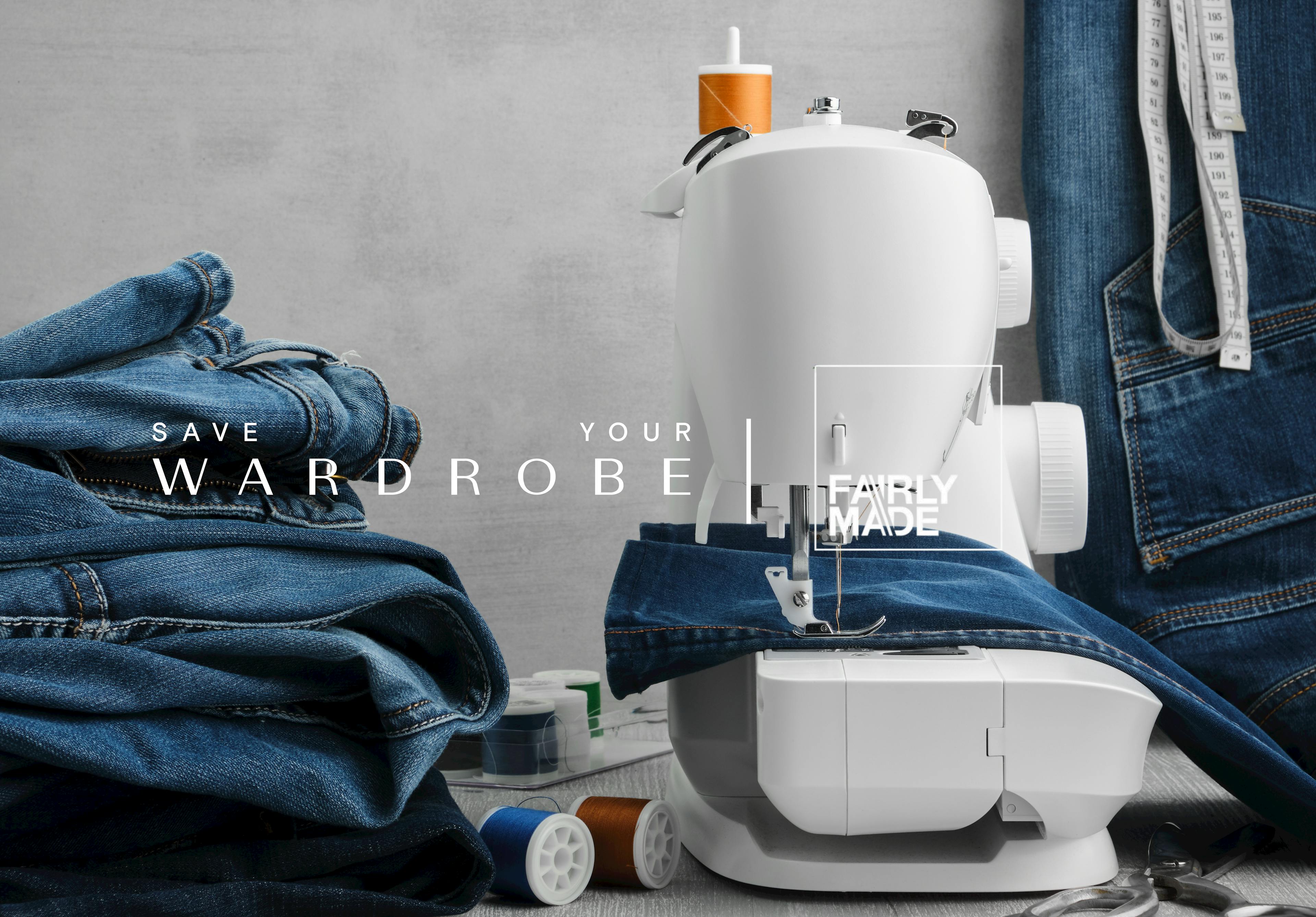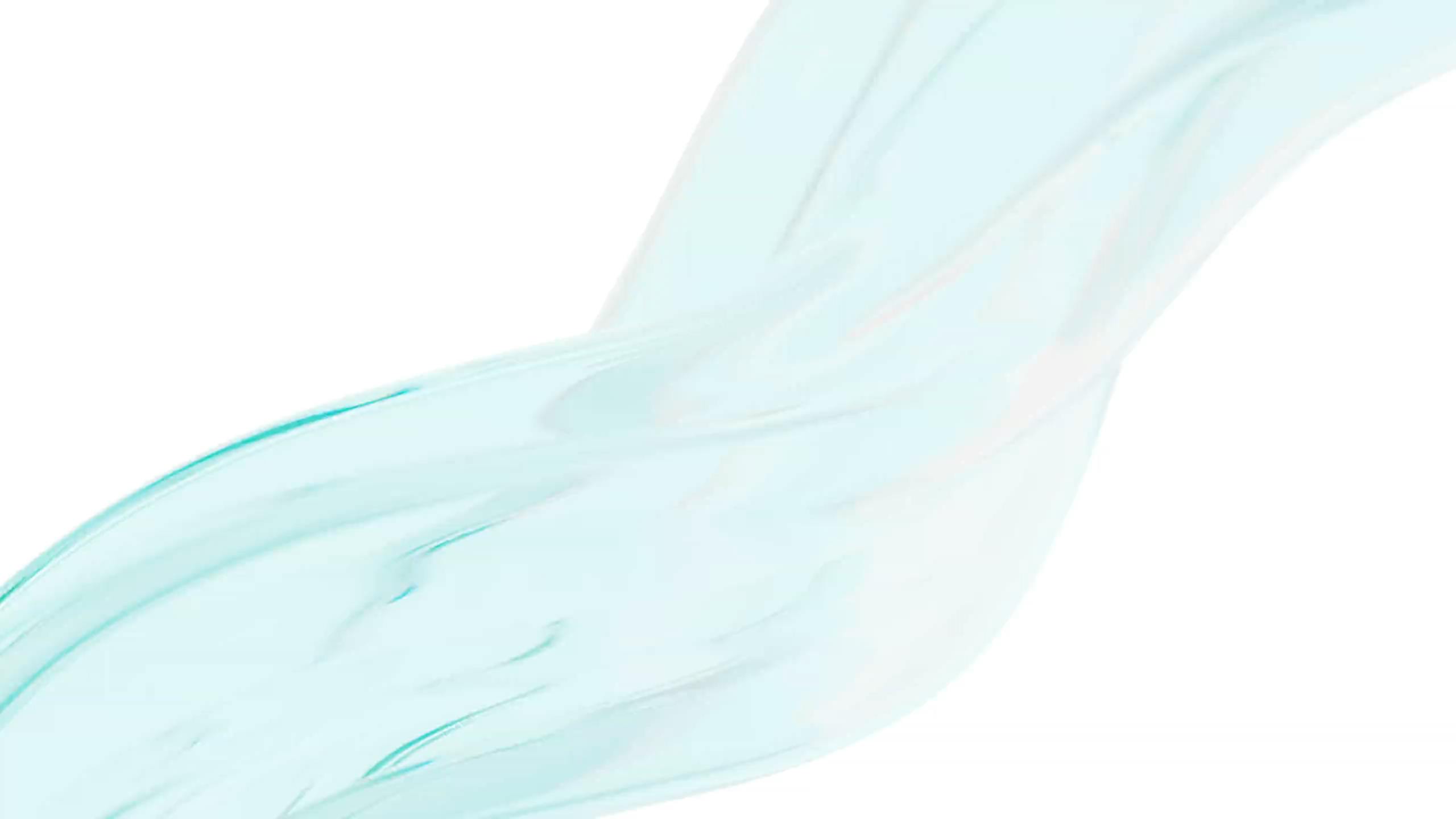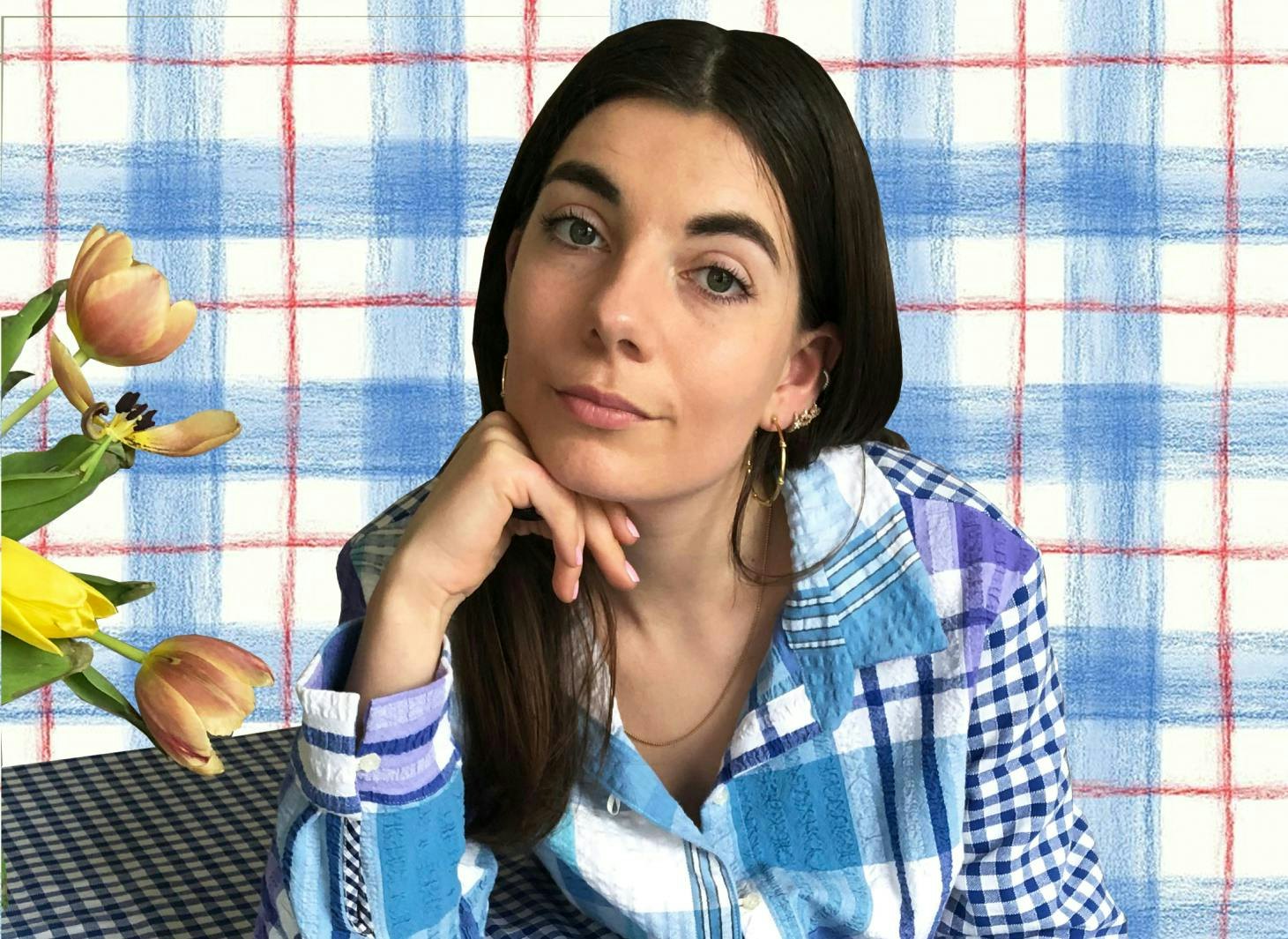
Mending as Mindfulness: A Conversation with Lydia Bolton
As part of SYW’s fashion mindfulness week we have been speaking with industry experts all about the interconnected nature of fashion and psychology, mindful benefits of mending and the future of fashion. In our latest instalment we talk to Lydia Bolton, whose namesake brand focusses on up cycling and sustainable luxury.
Georgia Taylor-Stidwell: You recently held a mending workshop, what role do you think mending can have on mental wellbeing?
Lydia Bolton: Creating with your hands can have such a positive impact on your mental wellbeing, it is a chance for you to be distracted from what is going on around you by having something so detailed and immediate to focus your hands and mental attention on. Mending tends to be fairly repetitive motions of pushing the needle through the fabric. This allows for the process to be a meditative experience and really therapeutic. Our phones, and particularly social media, can be a source of stress in our lives so using your hands to mend or create something means you physically cannot pick up your phone, you have to switch off.
There is a great sense of accomplishment that you can get by mending something with your own hands which adds to the positive impact the process can have.
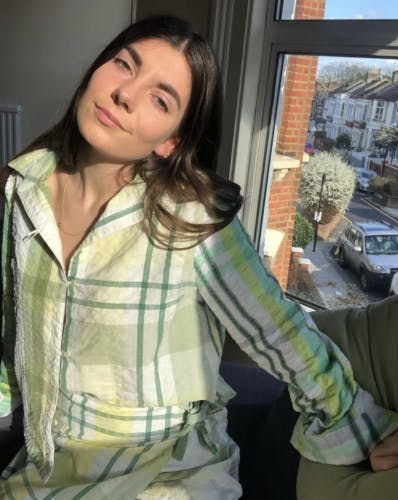
Lydia wearing one of her up-cycled garments
G: Have you noticed a difference in attitudes regarding mending and sewing? Could you reflect on this?
L: Mending and sewing is definitely becoming more popular with lots of people taking up sewing as a hobby in the pandemic. I think we are becoming more aware of how important it is to mend our clothes and prolong their life rather than throw them away.
G: What has been your biggest pinch me moment since launching your brand?
L: There have been lots of amazing moments! Being featured on Vogue twice, giving a workshop with Fashion Revolution, pop-up shops! But the biggest thing for me is my returning customers who continue to support my brand and want multiple LB pieces in their wardrobe, this to me is a real sign that they love my work.
G: What is the main inspiration for your handmade pieces?
L: I take inspiration from lots of places so there isn’t really one main source. I love looking at clothing from previous decades, currently loving the 70s. I like to focus on creating pieces that are really wearable and are extremely versatile. I think a lot about the potential wearer and take inspiration from how this item would add to their wardrobe and life. I am hugely inspired by fabrics; for example when I was thrifting in Paris, I found this amazing vintage cherry trim and I then created the shirt around the trim. Fabric really leads my creative process!
G: How large of a role do you think mending and upcycling will have on fostering increasingly considered consumption habits?
L: A huge role! It is the part which I think is often overlooked – there is a lot of focus on new fabrics like recycled polyester and while this is amazing, it’s super important that we use and care for what we have already produced! This care can take the form of mending or can come from up-cycling. If we want a more sustainable and conscious fashion world, we need to care about what we already have.
G: What is your favourite item you have made or up-cycled and why?
L: It’s hard to have favorites as they are all so special to me – I know the backstory of where the fabric came from, the challenges I had sewing the item and then posting it out to its next home!
One of my fave pieces was the gingham fruity jacket I made from a tablecloth. It’s the perfect combination of gingham and fruit illustrations.
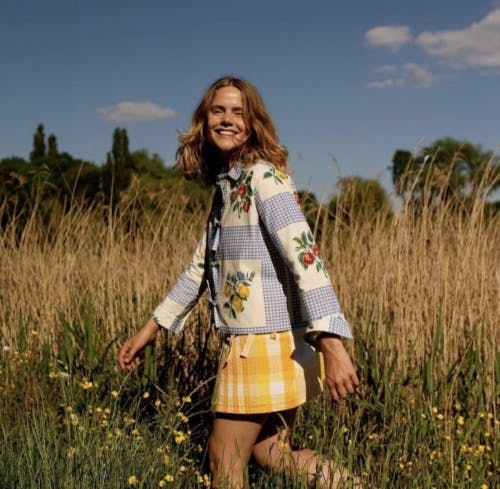
Lydia’s handmade fruit jacket made from vintage tablecloth
G: How did it feel that a popular online fast-fashion retailer copied your work? Could you reflect on how damaging this is for yourself and other small brands and designers?
L: It’s a real shame as it undercuts all the hard work we smaller brands have to do. Small brands such as mine tend not to have large teams of people and everything is much more a labor of love, driven by wanting to create a better fashion future. When a big brand with huge financial backing and massive team rip you off, it does feel unfair.
My wish would be that people put their values before their shopping desires and don’t support brands like this. Unfortunately I think we are quite a way off from that happening. For me, the most important way we can show support is voting with our money, spending your money wisely on brands that align with your values, as well as your visual clothing desires, is vital!
G: What do you envisage for the future of fashion?
L: I think collaboration is the future of fashion! The future is big brands working with smaller, more sustainable advocates to authentically create sustainable lines and a more conscious, caring industry. I envisage a future that doesn’t exploit and harm people or the planet.
G: Do you believe that fashion consumption can ever be sustainable?
L: Yes, but moderation is key. For sustainable consuption people must buy things they really love and know will be worn and rented. Being conscious of where things are coming from and of the other people in the supply chain – from how the fabric is produced to the person who made the item of clothing is also a really important part of the process towards fashion consumption becoming more sustainable.
If you have not already check out our previous mindfulness blog ‘Dopamine Dressing and The Devil Wears Prada’. Stay tuned for more fashion mindfulness interviews this week!


